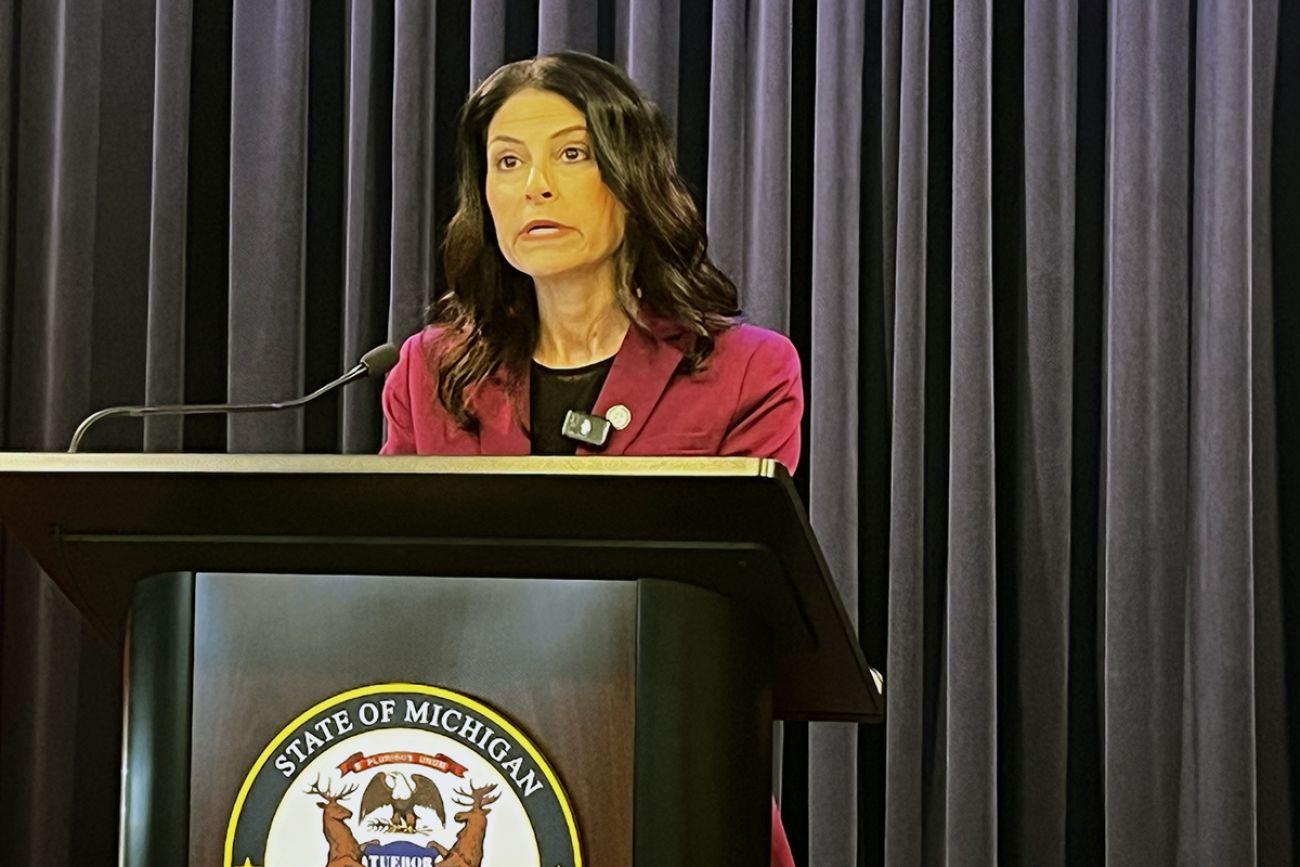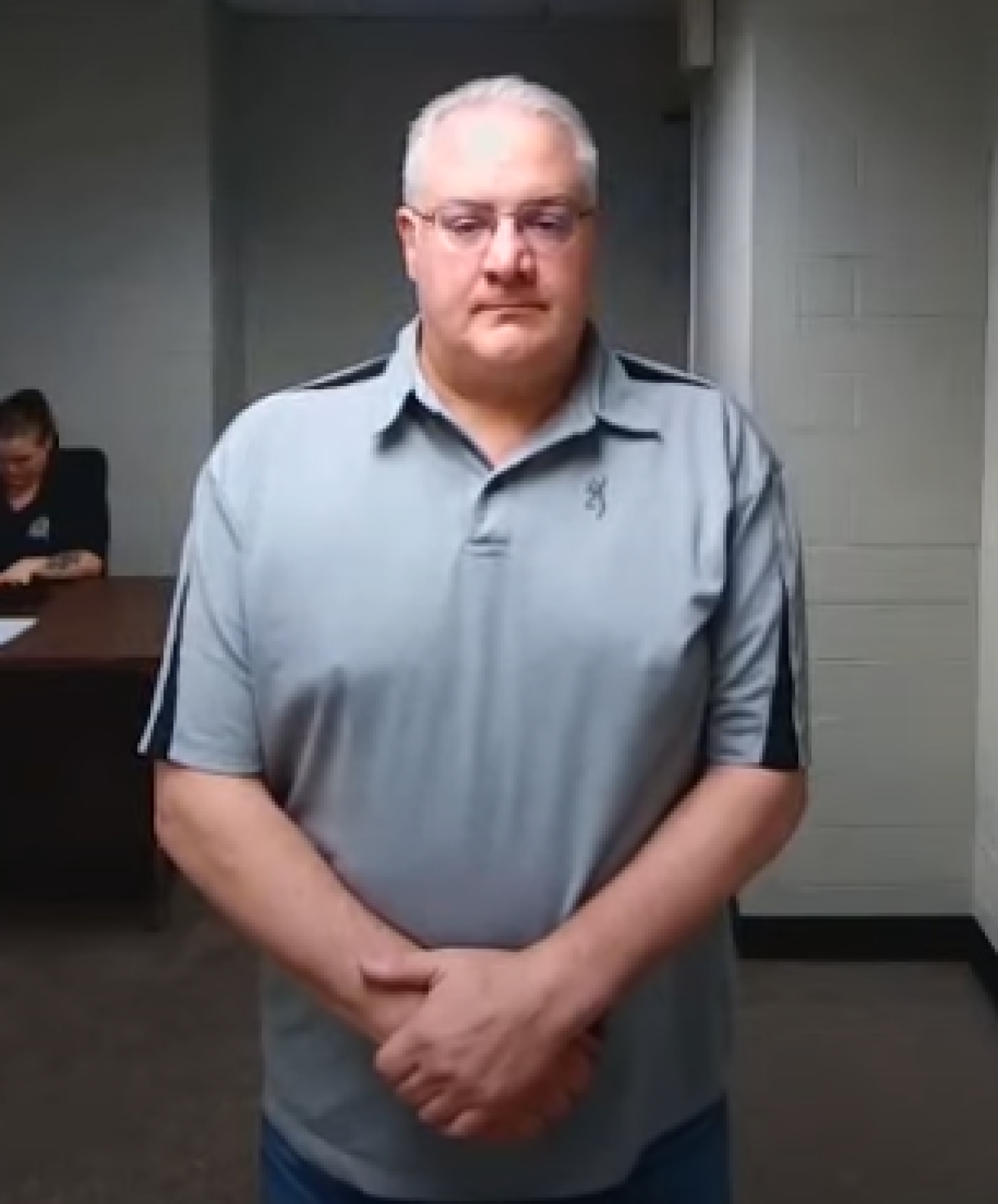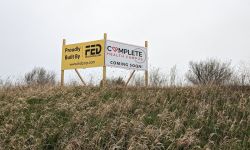Nessel: ‘Grave concerns,’ but no more charges in $25M Michigan earmark probe

- No more charges are coming in an investigation into a Clare health park project, Attorney General Dana Nessel announced Thursday
- A former aide to ex-House Speaker Jason Wentworth is charged with embezzlement, maintaining a criminal enterprise and more
- David Coker, facing eight felony counts, created a nonprofit that was awarded a $25 million earmark through the state budget
LANSING — A day after her office arrested a one-time legislative aide, Michigan Attorney General Dana Nessel said Thursday her team found no evidence of criminal wrongdoing by former House Speaker Jason Wentworth or current state Rep. Tom Kunse.
But she expressed "grave concerns" with the state’s prior earmark process, including a $25 million grant backed by Wentworth and awarded in 2022 to his one-time aide, David Coker, whose newly created nonprofit subsequently purchased $3.5 million in land from Kunse's family.
Coker was arraigned Wednesday on multiple felony counts for alleged racketeering and embezzlement of $820,000 that was intended to build a health park in Clare. He's denied wrongdoing, and his attorney said he "absolutely" plans to fight the charges.
Wentworth and Kunse, Republicans from Farwell and Clare, both cooperated with the nearly two-year investigation, which is now closed, according to Nessel, a Democrat.
Related:
- Former legislative aide charged with embezzlement in $25M Clare earmark scandal
- Key figure in $25M Clare health park grant cooperating with Michigan probe
- ‘Red flags’ surround $25M health campus pushed by ex-Michigan House speaker Jason Wentworth
"In order to charge other individuals, you really have to be able to say that you knew for certain that Mr. Coker intended to misappropriate this money," she told reporters.
"And if there is some sort of good faith effort to provide the grant, with the hope and the understanding and the expectation that the grant will be fulfilled, and that this health park will be completed, then it's not a crime."
The long-running investigation, which began in 2023, is now complete, according to Nessel, who said her team also “did not establish criminal wrongdoing” by Anthony DeMasi, a former Coker business partner sentenced to federal prison last year in a separate fraud case.
Wentworth, who has denied that the grant he wrote into the state budget was intended for Coker, said Thursday that he appreciated Nessel’s “thorough investigation,” her findings and acknowledgement he cooperated.

“My time as House Speaker was dedicated to improving the lives of Michiganders, including securing investments for rural communities like Clare,” Wentworth said in a statement.
Kunse, also in a statement, told Bridge that he was “thankful that the attorney general has completed her investigation,” saying he had voiced concerns about the project in March of 2023 after his family sold the land.
“When I asked for this investigation, I didn’t know exactly where it would lead,” Kunse said.
In her Thursday press conference, Nessel said the probe began after state Sen. Roger Hauck, R-Mount Pleasant, had shared concerns with the Michigan Department of Health and Human Services.
Ethical concerns
While Nessel stressed that her department “didn't find any evidence of criminality” by anyone other than Coker, she said actions by other individuals involved in the grant could “raise red flags” and be “ethically concerning.”
“It looks bad that a project went to a former staffer of the Speaker,” Nessel said. “We don't have any evidence that Mr. Coker had the requisite qualifications for a project of this type — and that, under normal circumstances, if you were bidding out the project … would it have gone to somebody like Mr Coker? I doubt it.”
But that’s the way “things have been done in Lansing,” she continued, “where it’s more about who you know than what your expertise is, or your experience or your ability to carry out that project.”
Nessel also suggested that the $25 million earmarked for the Clare health park was not enough money to complete the envisioned project, leading her to believe that Coker might have come back to Lansing looking for more money had he not been under investigation.
“I would suggest none of it looks very good,” she added.
Earmark oversight
Michigan lawmakers have in recent years added billions of dollars in earmarks to state budgets for pet projects in their districts, often shortly before approval with little time for legislative or public review.
Nessel said her office is also still “actively investigating” two other earmarks: One awarded to Fay Beydoun, CEO and president of the Detroit-based company Global Link, and another to Michigan Aerospace Manufacturers Association, and executive director Gavin Brown.
While she railed against what she called earmark abuses in the past, Nessel said she was encouraged by new efforts to “bring more sunshine into the appropriations process” and supports “any further guardrails the legislature sees fit to prevent fraudsters from stealing our hard working tax dollars.”
Nessel praised Democrats who, last term, required all legislative grant requests to have a named sponsor and be made public – albeit months after they were approved.
And she acknowledged House Speaker Matt Hall, R-Richland Township, for taking “another step forward” with new rules requiring earmark requests be made public long ahead of final budget negotiations.
As part of Hall’s effort, Nessel also lauded the revamped House earmark request process for requiring public entities or properly registered non-profit organizations do business in Michigan for at least a year prior to obtaining grant funding through the state budget.
That wasn’t the case with Coker’s nonprofit, Complete Health Park, which he formed in 2022 while Wentworth was working to provide funding for the project in the state budget.
Authorities allege Coker “immediately” wired about $820,000 of the grant money to his for-profit consulting firm, and then moved “hundreds of thousands” of dollars to a personal account, later using it to buy vehicles, firearm accessories, gold coins and bars.
“It’s inexplicable to me that you would have some of the LLC that seemingly just come into being just days, weeks or a month prior to the appropriation being signed into law,” she said.
Vetting flaws
Emails previously obtained by Bridge Michigan showed that state health department officials were initially unsure how to administer the grant for the Clare health park but attempted to expedite the funding because Coker was "well connected politically."
Beyond more earmark transparency, Nessel said Thursday she would also like to see the state adopt more uniform rules for awarding earmarked grants. Chief among them? Making sure a property is properly appraised.
That never happened for the Clare health park project, which saw Coker buy land from Kunse, who had succeeded the term-limited Wentworth in the state House.
“I was concerned that there was no appraisal of the property, and that $3.5 million was paid for property that — could it have exceeded that value? Possibly,” she said. “Could it have been far less than that value? This is state tax money.”
The Michigan Department of Health and Human Services approved the grant to Coker’s nonprofit without reviewing Coker’s qualifications or those of DeMasi, a proposed principal who had spent time in prison for fraud and was already under investigation again in a separate case.
But Nessel also credited the health department for halting the grant and launching an internal investigation after it had sent an initial $9.9 million to Coker’s nonprofit.
“I think it should be noted the hard work that they put in to find out what happened,” Nessel said, “and my hope is that there’s going to be improvements made to the system based on some of the failures that we saw here.”
‘There’s still hope’ to recoup funds
The state never sent out the remaining roughly $10 million of the Clare health park grant, and Nessel said she is not ruling out the possibility of trying to claw back money that was given to Coker’s nonprofit.
Absent physical dollars, she pointed to the handful of vehicles Coker allegedly bought with the state funds, saying the department intended “to have those be a part of the criminal asset forfeiture in the event that we’re able to successfully convict Mr. Coker.”
Among the things Coker allegedly bought for himself using state funds were:
- Four vehicles, including a 2023 Honda ORV and 2024 Chevrolet Trax
- More than 70 gold, silver or platinum bars
- At least 50 rare coins
- Firearm accessories, including actual bullets made of silver
- Precious metals, including american eagle coins and minted bullion pieces
“I would argue there’s some argument here of restitution as well,” Nessel said.
And with the project now halted, the attorney also suggested there could be a “good faith effort” to get the land Coker’s nonprofit purchased back into the hands of the state so that the state has ownership of it.”
See what new members are saying about why they donated to Bridge Michigan:
- “In order for this information to be accurate and unbiased it must be underwritten by its readers, not by special interests.” - Larry S.
- “Not many other media sources report on the topics Bridge does.” - Susan B.
- “Your journalism is outstanding and rare these days.” - Mark S.
If you want to ensure the future of nonpartisan, nonprofit Michigan journalism, please become a member today. You, too, will be asked why you donated and maybe we'll feature your quote next time!




